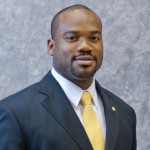New York Cool
Young acclaimed classical ensemble ACME makes Milwaukee debut looking back at World War II.

Members of the American Contemporary Music Ensemble (from left to right) violinist Caleb Burhans, cellist Clarice Jensen, violinist Ben Russell and violist Nadia Sirota, are known for their indie contemporary-classical music. Photo by Ryuhei Shindo.
Milwaukee gets an “indie” perspective on classical music this week as the American Contemporary Music Ensemble arrives for its first-ever concert in the city.
Members of the New York-based group — who recorded with such artists as Jónsi, Grizzly Bear and Arcade Fire — will take a quick break from their solo careers to perform together at the South Milwaukee Performing Arts Center tonight.
Described by the New York Times as “vital” and “electrifying,” the ACME is known for its contemporary-classical selection. Founding member Nadia Sirota says being a non-major label, self-started group lends a freedom that serves the group well.
“We really are programming to our own taste,” Sirota says. “We get the chance to share music to an audience, not for a board of directors, but what we really like.”
Sirota will play as violist for ACME’s Milwaukee performance, which will also feature violinists Caroline Shaw and Ben Russell, cellist Clarice Jensen, clarinetist Hideaki Aomori and pianist Timo Andres. This concert, titled “Songs Still Sung,” is out of the norm for ACME, as the featured works are older compared to the very contemporary music the group usually plays.
“We tend to play music that is still kind of wet,” Sirota jokes. “So this is a little different, but we really value music from the last century.”
The program features two mid-20th century works: Olivier Messiaen’s “Quatuor pour la fin du temps (Quartet for the End of Time)” and Moisey Weinburg’s Piano Quintet (Op. 18). The pieces offer two powerful examples of artistic reactions to the horrors of World War II.
“Both of these pieces are reflecting both immense melancholy and joy from the time period,” Sirota says. “It’s an interesting slice of history.”
This will not be the first time Messiaen’s Quartet is played in Milwaukee this season, as Frankly Music took on the piece in January. Sirota describes the work as “one of the best things ever created.”
The piece was written by Messiaen after he was captured by Germans in 1940 and spent time at a prisoner of war camp. Here, the composer met three professional musicians — a violinist, cellist and clarinetist — for whom he wrote the quartet.
The hour-long work premiered at the camp outside and in the rain in 1941. The musicians used poor quality instruments, with Messiaen on a broken down piano. Still, the piece had an amazing effect on the prisoners and has since become known as one the composer’s most popular works.
“It was so evocative that tons of groups recreate it over and over again,” Sirota says. “It’s like it was a meal created out of the scraps from a pantry.”
By contrast to this work’s popularity, Weinburg’s is slowly being rediscovered as a forgotten treasure of the 20th century. The artist lived a tragic life, emigrating from Poland to the Soviet Union barely in time to escape religious persecution. Most of his family, however, did not survive the war as victims of the Holocaust.
But Weinburg’s music was largely ignored by the Soviet establishment. In fact, the musician most likely would have been imprisoned and killed by the Stalin regime if it were not for his lifelong friendship with Dmitri Shostakovich. It took decades for Weinburg to be recognized as one of the rivals to Shostakovich’s musical prowess.
“He’s kind of a pivot guy,” Sirota says. “His music is so of-its-time in a way that is just full of visceral emotion.”
Whatever the history of the two works, ACME is likely to perform them from their own, very contemporary, 21st century perspective. “You can’t go back to rewind a live performance,” Sirota says. “But I think it will be really entertaining, enjoyable and memorable.”
7:30 p.m. March 13 (tonight!). Tickets are available from $12-$39 by calling (414) 766-5049 or by visiting the SMPAC’s website.
Cherish the Ladies plays with the Milwaukee Symphony Orchestra
The Milwaukee Symphony Orchestra will celebrate St. Patrick’s Day a little early this year, joining the all-female “Cherish the Ladies” group to play some of the world’s best known Celtic music.
Cherish the Ladies, which has been called “one of the foremost Irish traditional music groups in the world” by The New York Daily News, will be led by conductor Michael Krajewski.
8 p.m. on March 14-15 and 2:30 p.m. on March 16, at the Marcus Center for Performing Arts. Tickets range from $22-$102, available at the MSO’s website or by calling (414) 291-7605.
Gearing up for the Milwaukee Symphony Orchestra’s Beethoven Festival
It would be inappropriate for the MSO to dive into three straight weeks of Beethoven without a proper introduction, which is why the company is putting on a special movie screening of “Following the Ninth.”
The film follows the stories of four people who are inspired by Beethoven’s Symphony No. 9 and his lyrics: “Alle Menschen werden Bruder (All men will be brothers).”
The Beethoven Festival will begin with the Ninth Symphony March 21, which will be followed by performances of his Symphony No. 3 and Symphony No. 7 in the subsequent weeks.
Following the Ninth will be screened 7 p.m. on March 13 at the Times Cinema. For more information, visit the MSO’s website.
Timeless Romance by the Festival City Symphony
Frank Almond will step in as lead violinist for the Festival City Symphony’s upcoming concert Timeless Romance, which will feature music by Felix Mendelssohn.
Mendelssohn, well-known for his Italian Symphony, Scottish Symphony, and The Hebrides overture, became one of the most popular Romantic composers in his abbreviated lifetime. The FCS’s concert serves as a tour to celebrate the artist’s life.
3 p.m. on March 16 at the Pabst Theater. For more information, visit the FCS’ website.






















